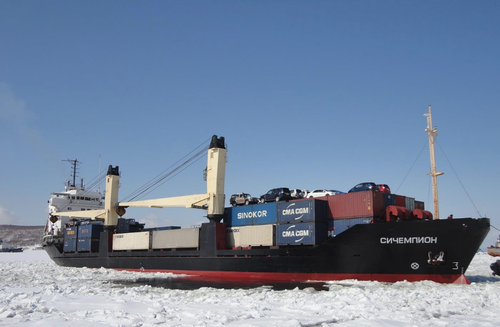ÐÎÑÑÈÉÑÊÈÉ ÏÐÎÔÅÑÑÈÎÍÀËÜÍÛÉ ÑÎÞÇ ÌÎÐßÊÎÂ
SEAFARERS' UNION OF RUSSIA
A NON-UNIONIZED SEAFARER
IS AN UNPROTECTED SEAFARER
Back
Certificate of insurance on board does not guarantee payments

The payment or recovery of insurance compensation in connection with crew member's accidental or injury death on board the vessel may be denied if the vessel does not have a collective agreement providing for such compensations, and also if the individual contract of employment does not reflect the related obligation of the employer. The court’s decision on the suit of Mrs. Vidanova, the wife of the seafarer who died on board the “Sea Champion” (Russian-flagged), leads to the above mentioned conclusions.
Her husband died
from carbon monoxide poisoning on board the vessel The Vladivostok-based insurance company
“Soglasie”, the underwriter of the shipowner's civil liability towards
seafarers, denied Mrs Vidanova to pay the insured amount. Considering it
illegal, the woman went to court. The Court acknowledged her demands and
awarded to recover RUR 1,905,900 from the
insurance company “Soglasie”.
Representatives
of the insurance company did not agree with this decision and filed the appeal. They referred to the fact
that the terms of the contract provide for the civil liability of the shipowner
towards the crew members in case of injury or death as a result of the injury,
and not their life and health, which already applies to personal insurance.
That is, the contract allegedly does not provide for insurance payments in case
of gas poisoning.
After
reviewing the case papers and analyzing the terms of the insurance policy, the
court reversed the decision. Article 60
of the Merchant Shipping Code does oblige the shipowner to insure the life and
health of crew members, nevertheless the court decided this fact was not
relevant to the case in point, since the defendant is an insurance company and
the claim for payment is based on the certificate of insurance which had been concluded earlier.
There were no evidence that the seafarers' life and health insurance contract between the company "Soglasie", the shipowner "TRANCO-DV" or the charterer "Grand Shipping" had been concluded. In fact, the existing contract provides for payments in case of injury death only.
The
court also found no evidence that in such case the owner or the charterer are
obliged to pay compensation to heirs. În board the vessel
there was no collective agreement that
provided for it. As for the seaman's contract of employment, there were no
provision concerning the payment of death compensation to heirs in it: the exact amounts of insurance payments were not stipulated
there.
Also, the Court of Appeal acknowledged as wrong the conclusions that the liability of the shipowner towards the crew members is mandatory, and Mrs. Vidanova has the right to claim for compensation payment from the insurer itself.
Clause 4 , Article 3 of Law of the Russian Federation of November 27, 1992 “On the Organization of Insurance in the Russian Federation” establishes that the terms and procedures for the compulsory insurance are determined by federal laws. In the Russian Federation there is no such law that establishes the obligation to insure liability of shipowners towards crew members and stipulates minimum rates of insurance payments.
“This case makes it clear, that the rights of seafarers working on vessels without a collective agreement are not protected, and insurance certificates without a specific amount specified in them do not provide payments to the heirs of dead seamen,” says Nikolai Sukhanov, Chairman of the SUR FETO. “Nevertheless, with the assistance of our lawyer, we secured through the court action the seafarer's wife with the compensation for moral harm in the amount of RUR 3,000,000.
Up
